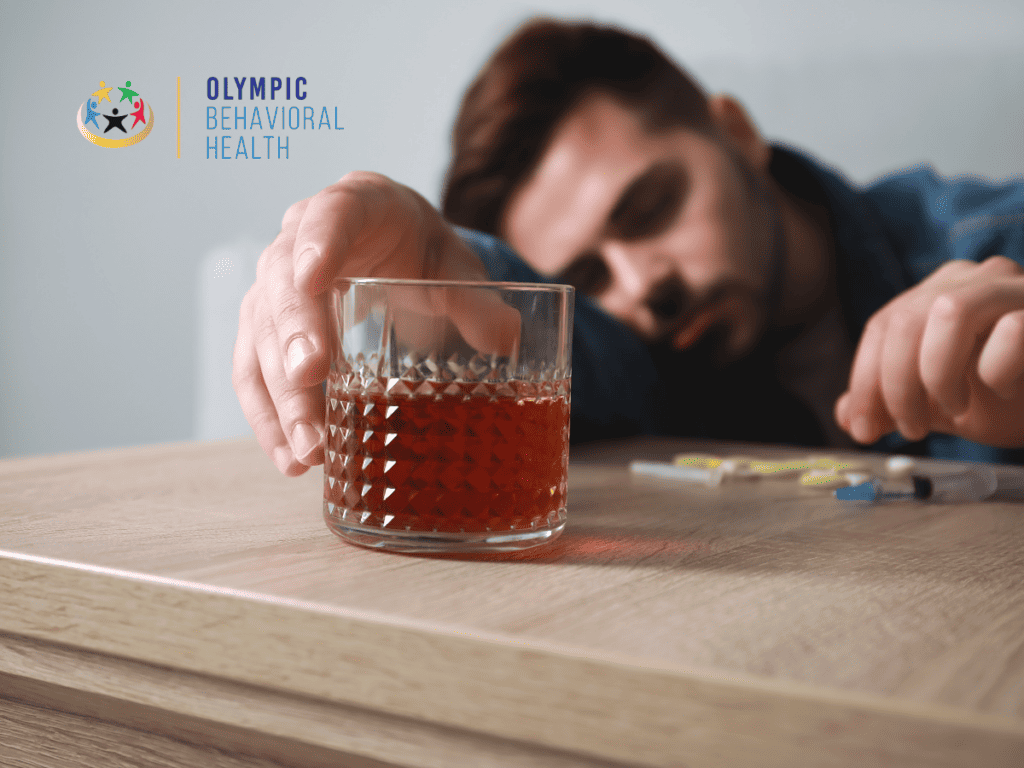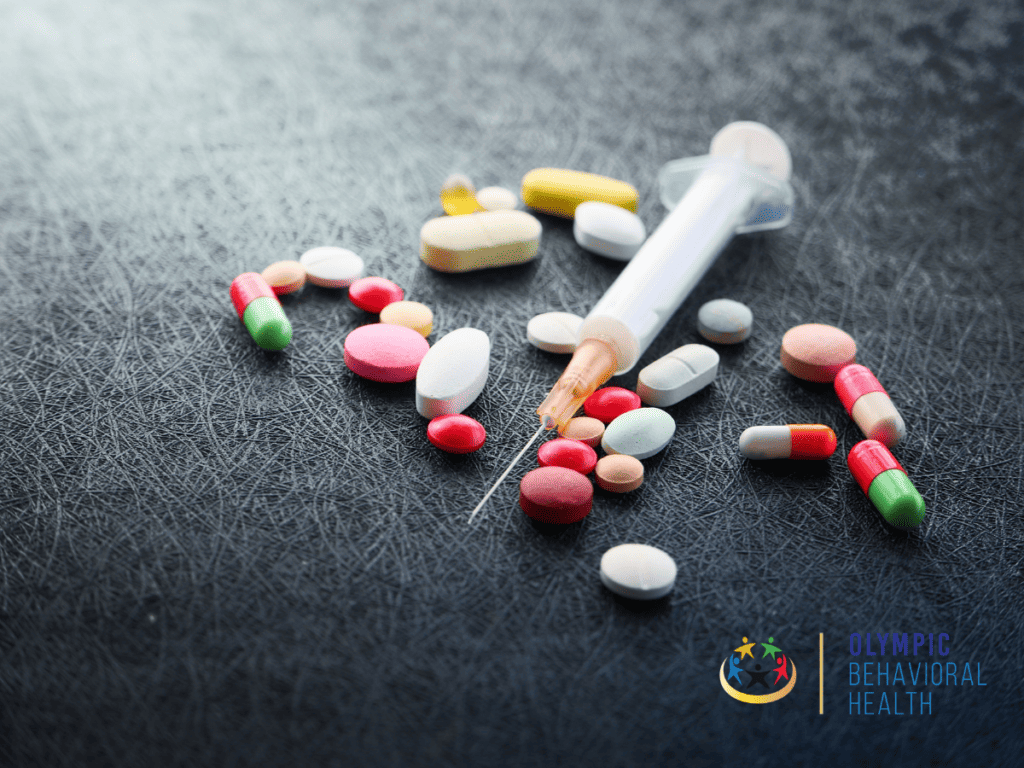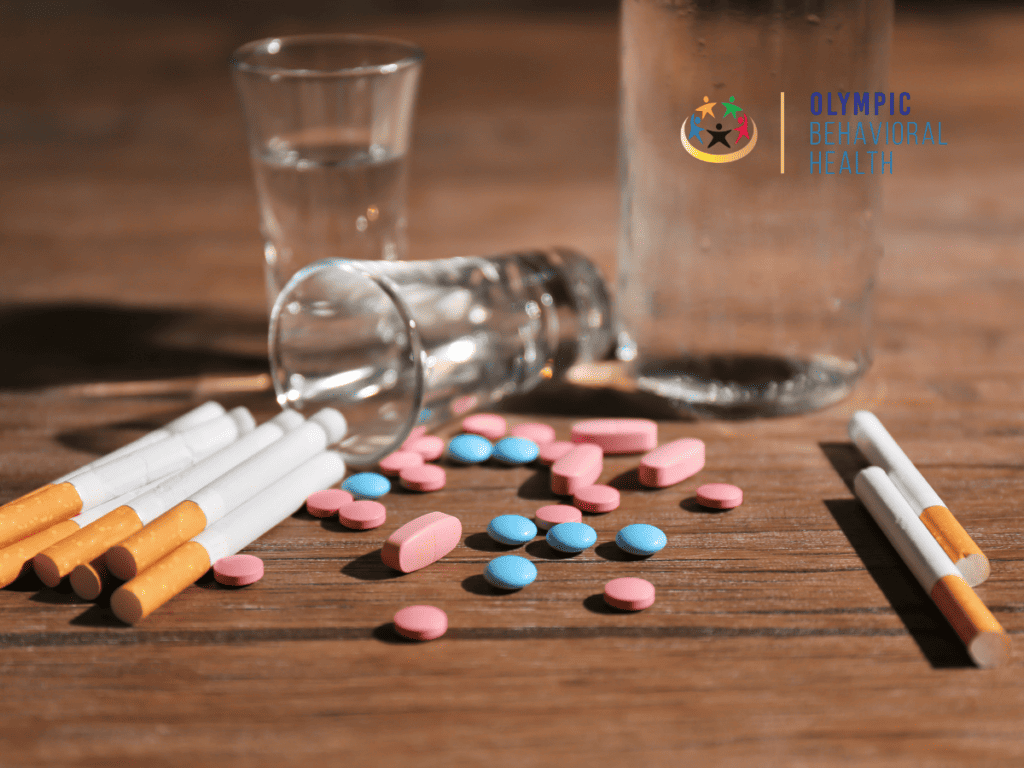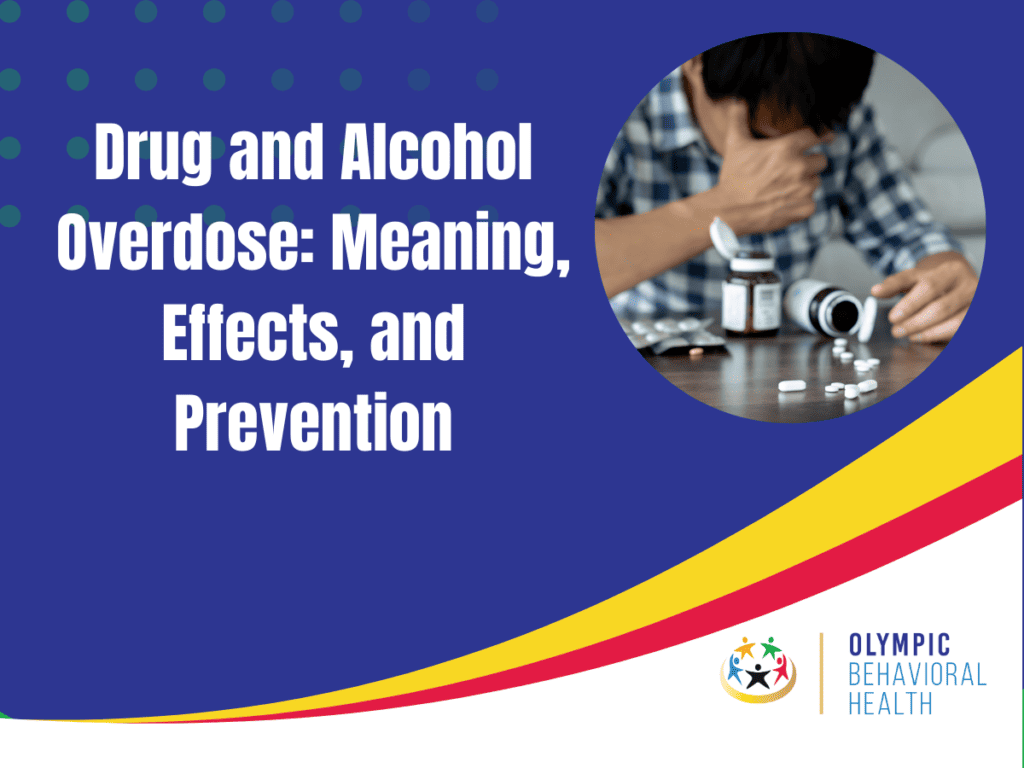From 2019 to 2020, deaths associated with an overdose increased by a staggering 31% in the United States and continues to increase steadily, according to data released by the Centre for Disease Control and Prevention (CDC). Similar trends of an epidemic of drug overdoses are experienced globally, making drug and alcohol overdose one of the most discussed subjects globally.
An overdose refers to taking more than the prescribed dosage of a substance or consuming more quantities of a substance than your body can handle at a time. This could either be intentional or not, but overdose could pose serious threats, including death.
The effects of drug and alcohol overdose depend on the substance taken. It could be mild or severe, up to the point of posing serious threats to life. The effects of overdose include: vomiting, slowed breathing, seizures, cardiac arrest, etc.
Removing triggers for intentional overdose or opportunities for accidental overdose is among the best methods of preventing drug and alcohol overdose.

What is Drug and Alcohol Overdose?
According to the American Psychological Association (2018), an overdose happens after a person takes a toxic level of a substance or combination of substances resulting in interfering with the brain and the overall body’s ability for proper or optimum functionality. It can have diverse health consequences, both temporarily or permanently. Sadly, it also causes death and overdose-related deaths have been increasing steadily over the years.
It happens when an individual takes more than the prescribed dosage of a drug or consumes more than the level of alcohol the body can handle at a time, hence overwhelming brain and body functions. It can also be the result of the interaction of substances when multiple substances are taken by a person or when alcohol is used with a drug.
Drug and alcohol overdose can be intentional or accidental. Intentional overdose involves individuals deliberately taking more than or disregarding dosage instructions. Accidental overdose, on the other hand, happens because of mistakes or ignorance. Several factors can make some people more vulnerable to overdose than others and the symptoms vary, depending on the substance.
What are the Risk Factors of Drug and Alcohol Overdose?
The risk of drug and alcohol overdose is increased by several factors, including the following:
Improper drug storage: Children are usually the victims of this risk factor because of their curiosity and propensity for putting things in their mouths. Storing drugs within the reach of children increases the risk of accidental storage.
Ignorance or neglect of dosage instructions: adults face increased risk of drug overdose if they don’t know or follow the instructions given by professionals.
Method of drug usage: people who use intravenous routes may be at a higher risk of an overdose than people who use other methods.
Illicit drugs: illicit drugs are not regulated like prescription drugs, thereby making them difficult to dose. Hence, the risk of an overdose is higher.
History of addiction or misuse: people with a history of drug misuse, combination, or using illicit drugs are at a higher risk of an overdose.
History of mental disorders: conditions like suicidal thoughts and depression are common triggers for overdose, especially when they are not treated.
Age: young people are at a higher risk of drug overdose because they are more likely to drink excessively.
Gender: women are at a lower risk of alcohol overdose because they are less likely to drink heavily.
Body Size: How quickly our body absorbs alcohol is significantly influenced by our weight and height. Hence, the larger the body, the lower the risk of alcohol overdose.
Tolerance: People often brag about their high tolerance for alcohol. Unfortunately, they could face a higher risk of an alcohol overdose.
Binge-drinking: Binge drinking increases the risk of an alcohol overdose.
Underlying health conditions: Some health conditions, e.g. diabetes and cardiovascular issues, may increase the risk of an alcohol overdose.

What are the Effects or Symptoms of Drug and Alcohol Overdose?
The substance or substances used by a person determines the symptoms an overdose will present. Drugs like opioids may present devastating short-term symptoms including slowed breathing and unresponsiveness to stimulation. Because the symptoms may vary markedly, the symptoms of overdose of several substances will be listed below.
Effects or Symptoms of an Alcohol Overdose
• Distinct stupor or mental confusion
• Complete unconsciousness or falling in and out of consciousness
• Not responsive (cannot be roused or woken up)
• Vomiting: this increases the risk of diminished gag reflex, which is very dangerous
• Seizures
• Irregular or slowed breathing
• Slower heart rate or cardiac arrest
• Pale skin
• Dangerously low body temperature
Effects or Symptoms of an Opioid Overdose
According to the Centers for Disease Control and Prevention, more than 80 percent of overdose-related deaths involved opioids. It is the leading cause of accidental deaths in the United States, more than deaths caused by motor vehicles. Therefore, opioid overdose is one of the most dangerous overdoses. Some of the symptoms are listed below, which once noticed requires immediate and urgent attention.
• Constricted pupils
• Unconsciousness
• Breathing problems: breathing could be slowed or irregular or stopped, known as Respiratory arrest
• Gurgling, choking, or snoring sounds
• Unresponsiveness
• Purple or blue fingertips or lips
Effects or Symptoms of Benzodiazepine Overdose
• Distinct confusion
• Slurred speech
• Breathing becomes slow and labored or stops
• Significant mental impairment
• Coma
Effects or Symptoms of Stimulant Overdose
• Very high body temperature
• Marked increased blood pressure
• Rapid breathing or hyperventilation
• Rapid or irregular heartbeat
• Hallucinations
• Panic
• Seizures and convulsions
• Aggressive behavior
• Serious cardiovascular issues e.g. cardiac arrest, stroke, and compromise of circulation
• Psychosis features like paranoia
Note: as stated above, overdose could be a result of the combination of two or more of the above drugs. Hence, the symptoms can even be more devastating.

How can Drug and Alcohol Overdose be Prevented?
Store drugs properly: to prevent children’s accidental overdose, it is important to properly seal drugs and put them out of their reach. Almost all drugs have the instruction of keeping drugs out of the reach of children on them, including children’s drugs.
Know and follow dosage instructions: one of the first things you should seek to know when purchasing a drug is dosage instruction. Usually, professionals will give you these instructions once a drug is prescribed. However, if they fail to do so for whatever reason, ask and listen attentively. Ask further questions if you need clarification. Once you know the dosage instructions, follow them exactly.
Don’t take illicit drugs: getting the dosage of illicit drugs right can be difficult because they are not regulated. Reduce the risk of an overdose by using only prescription drugs.
Don’t mix drugs: some unintentional overdoses are caused by drugs combinations. If you want to combine drugs for any reason, speak to a professional first to ensure it is safe.
Don’t take drugs with alcohol: some people find taking drugs difficult, hence they use other options, including alcohol, to make it easier. This increases the risk of an overdose significantly; stop it if you have been doing it and if contemplating it, don’t do it.
Don’t binge-drink: to reduce the risk of alcohol overdose, you should either stop binge-drinking or reduce it significantly. Therefore, you may want to avoid attending parties that force you to binge-drink.
Know yourself: self awareness is a very powerful way to prevent an overdose. For example, you know your health conditions and how vulnerable you are to an overdose. Don’t be alone if you are taking drugs, so if something happens, they can help.
Treat depression: depression is among the biggest triggers of drug and alcohol overdose. Hence, talk to a professional if you are noticing the signs of depression.
What to Do if Someone is Overdosing
According to the Substance Abuse and Mental Health Services Administration, do the following things if you or someone you know is overdosing.
Emergency call: call 911 and provide as much information about the situation as possible. For example, the substance used and symptoms presented are essential information. You will be instructed on what to do based on the information.
If you know or suspect opioid is the substance used, administer narcan if available. It often reverses the overdose. A second dose can be addictive after 2 to 3 minutes if the person is still not responding.
Don’t leave the person until help arrives.
Note: the steps above are just first aid, hence professional assessment and treatment must be done.
Treatment of Drug and Alcohol Overdose
Treating drug and alcohol overdose depends on the situation. One of the most important information needed for overdose treatment is the type of substance ingested. When this information is known, treatment is specific. However, the type of substance isn’t always known. Hence, general treatment strategies are often used by healthcare providers. The strategies include:
- In case of breathing issues, the airway is cleared, and a breathing tube may be inserted if required.
- Activated charcoal is administered to absorb the drug in the digestive tract.
- Vomit can also be induced or the stomach pumped to remove the substance from the stomach.
- Intravenous fluid is given to aid the body in removing the substance faster.
Note: when the substance is known, there are antidotes for the overdose of some drugs. For instance, naloxone is used to reverse the effects of heroin overdose.
Can you genetically have a higher chance of addiction?
Genetics can play a role in a person’s vulnerability to addiction. Some individuals may have genetic variations that make them more likely to develop substance abuse disorders and have a lower tolerance for drugs and alcohol. These genetic differences can affect the way the brain processes and responds to substances, leading to a higher risk of addiction.
However, it is important to note that genetics are not the only factor in determining addiction risk, as environmental and social influences also play a significant role. To learn more about the role of genetics in addiction, click here.
What are the effects of Addiction on Mental Health?
The effects of addiction on mental health can be debilitating. Substance abuse can lead to changes in brain chemistry, resulting in mood disorders such as anxiety and depression. Additionally, addiction can worsen pre existing mental health conditions or trigger the development of new disorders. This can create a vicious cycle, as individuals struggling with mental health issues may turn to substance use as a coping mechanism, further exacerbating their condition.
It is important to address both addiction and mental health simultaneously in order to achieve successful recovery. To learn more about the relationship between addiction and mental health, check out our article.
Get help for your Addiction
Addiction Treatment at Olympic Behavioral Health offers help and support for those struggling with addiction. Taking the first step can be difficult, but it is crucial to call for assistance. Our facility in West Palm Beach provides comprehensive addiction treatment programs to guide individuals towards recovery. If you or your loved one is battling addiction, reach out to Olympic Behavioral Health today.

Share This Post



